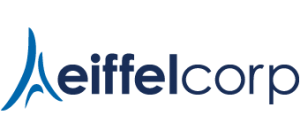
Magriet de Villiers is an Advisor in Learning Technologies at Stellenbosch University’s Centre for Learning Technologies. She has a keen interest in political philosophy and public theology and she is currently doing research on the work of Hannah Arendt’s understanding of critical thinking and judgement through this lens. Magriet has a passion for and interest in a pedagogy of discomfort, where learners are unique individuals who step into the world of higher education with embedded psychosocial structures and knowledge.
For students to gain the necessary skills to become well-rounded individuals and dynamic professionals, we need to instil a community of practice where students, educators and broader structures work together to enable a holistic environment that these students.
In this webinar, Magriet will be sharing her thoughts on COVID-19 and the continuing discussion on academic integrity.
“The more things change…the more they stay the same.”
Listen in to learn more about how things have changed from a classroom or face-to-face teaching environment to remote emergency teaching? How has this had an impact on Academic Integrity?
There are numerous assumptions surrounding academic integrity within the context of the online learning environment:
- Students cheat more in online environments
- Policies are the answer
- ‘Plagiarism detection software’ is enough
Magriet addresses these assumptions, highlighting truth vs myth.
To learn more, listen to the recording of this webinar below:
Bibliography for this webinar:
Blue, A. 2020. ‘Pandemic Fatigue’ marks a mental health crisis [Online]. Available: https://www.futurity.org/pandemic-fatigue-mental-health-covid-19-2405742/ [2020, August 15].
Booyens, M. 2020. Is dosente opgewasse vir aanlyn klasgee?[Online]. Available: https://www.netwerk24.com/Stemme/Die-Student/is-dosente-opgewasse-vir-aanlyn-klasgee-20200820 [2020, August 20].
Bruton, S. & Childers, D. 2016. The ethics and politics of policing plagiarism: A qualitative study of faculty views on student plagiarism and Turnitin. Assessment & Evaluation in Higher Education, 41(2).
Hodges, C., Moore, S., Lackee, B., Trust, T. & Bond, A. 2020. The Difference Between Emergency Remote Teaching and Online Learning[Online]. Available: https://er.educause.edu/articles/2020/3/the-difference-between-emergency-remote-teaching-and-online-learning [2020, May 27].
Jones, M. & Sheridan, L. 2015. Back translation: an emerging sophisticated cyber strategy to subvert advances in ‘digital age’ plagiarism detection and prevention. Assessment & Evaluation in Higher Education, 40(5).
Li, C. & Lalani, F. 2020. The COVID-19 pandemic has changed education forever. This is how [Online]. Available: https://www.weforum.org/agenda/2020/04/coronavirus-education-global-covid19-online-digital-learning [2020, May 29].
Macdonald, R. & Carroll, J. 2006. Plagiarism—a complex issue requiring a holistic institutional approach. Assessment & Evaluation in Higher Education, 31.
Mphahlele, A. & McKenna, S. 2019. The use of Turnitin in the higher education sector: Decoding the myth. Assessment & Evaluation in Higher Education, 44(7).
Tolman, S. 2017. Academic Dishonesty in Online Courses: Considerations for Graduate Preparatory Programs in Higher Education. College Student Journal, 51(4).
Watson, G and Sottile, J. 2010. Cheating in the Digital Age: Do students cheat more in online courses?. Online Journal of Distance Learning Administration, 3(1).
Watson FF, Bishop MC & Ferdinand-James, D. 2017. Instructional Strategies to help Online Students Learn: Feedback from Online Students. TechTrends, 61.


